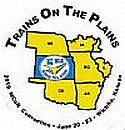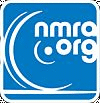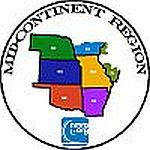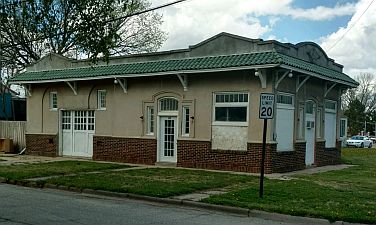















|
2019 MCoR CLINICS and SYNOPSIS:
BUILDING WITH CARDBOARD by: Larry Alfred, MMR
Larry will discuss the many uses of all types of cardboard and paper in building many parts of your railroad. He will point out the various types of cardboard, their use for the main portions of structures, for add-ons, and for detail parts. The full range of cutting, forming, gluing, and finishing will be shown. If you haven’t included this medium in your model building, you should try it and this clinic will give you some ideas as to where to start.
SPEED MATCHING (Train Speed and Engine Calibration) by: Ray Brady
Model railroads also have realistic operations, usually establishing train speeds representative of prototype operations. This clinic will present methods to address locomotive "Speed Matching" such that prototype speeds can be achieved for the locomotive, as well as allowing consisting of locomotives, including the option for DPU (Distributed Power Units. this method works for Steam, Diesel, Turbine, or Electric motive power.
SCENERY MADE EASY by: Dugan Frank - Scenery Solutions
Dugan shows you how easy it is to use Fusion Fiber and build beautiful scenery for all kinds of dioramas and other crafts and hobbies.
BASIC MODEL RAILROAD OPERATIONS by: David Heinsohn
This clinic is an introductionto model railroad operations. It introduces some basic terminology and shows how to begin planning for operations on your model railroad. This clinic will begin with the Edutrain Clinic, created by Dick Roberts, , include some of David's opinions, and conclude with questions and answers. This clinic is targeted to those new to or considering model railroad operations.
HOW FAR APART SHOULD MY TRACKS BE? by: David Heinsohn
Using the NMRA Recommeded Practices - to answer common layout quesyions. This clinic will look at common layout design questions and show possible answers from Recommend Practices published for all to use by the NMRA. The motto of the Layout Design SIG is "Make only new mistakes." The NMRA put considerable effort into providing ways to avoid some of those old design mistakes. The presentation will include a question and answer session. This clinic is intended for model railroaders of all skill levels.
QUICK, EASY, INEXPENSIVE SCENERY by: Jim Hogben
Presenting some simple techniques to make realistic scenery for a layout of any size or scale.
APPLICATIONS of WEATHERING MIX by: Rick & Maurine Hunter - Hunterline Products
Maureen and Rick will demonstrate many applications of Hunterline’s Weathering Mix. They will show applications for wood, plastics, hydrocal, foams and other mediums, and how to achieve multiple color surfaces.
MAKE ‘n’ TAKE CLINIC by: Rick & Maurine Hunter - Hunterline Products
Pre-Registration Required – Contact Hunterline Phone 1-866-934-4174 email: rick@hunterline.com
Major Credit Cards / PayPal accepted.
Join Maureen and Rick from Hunterline, as they take you through, step by step instructions, to build your own Hunterline 30’ King Post Truss Bridge in your scale (N, HO, S, O, including all the Narrow Gauge scales). This is a beginner to intermediate difficulty. Old pros can learn a few things too! Includes the kit and two bottles (8oz) of our Weathering Mix – a base color and our Creosote Black as a highlight color.
For more Info, Click Here
RAILROADS DOWN UNDER by:Jim Marlett
A Look at Railroads in Australia and New Zealand.
AVI -ARKANSAS VALLEY INTERURBAN RAILROAD –1910 to 1941 by: Vince Marshall
Learn about some of the interesting developments and activities of the AVI electric railroad that served Wichita, Newton, Hutchinson and smaller towns in between.
THE MERGER THAT WASN'T by: Mike Martin
The merger that wasn't: SPSF (Shouldn't Paint So Fast) - A view from the inside.
MAKING ORANGE AND CONIFER TREES by: Alan Meinholdt
Every railroad needs trees. If you have trains running through mountains or open range, you can add depth, color, and shadows from trees.If your trains are hauling produce such as oranges, in a small space along the line you might want to add a few rows of orange trees. I can show you how to make conifer trees from wooden food skewers and an orange grove out of styroform balls. With a different variety of trees and creative thinking you can add a new industry or siding to set out and pick up car loadings.
THE GREAT TRAIN ROBBERY (Part 1) by: WPD Sgt. Jim Merrick (Ret.)
In January 1994, two locomotives were stolen from Union Pacific's former Missouri Pacific yard in Wichita and after a joyride across the city, they flew off a curve downtown and crashed. Come along on the 5-year journey of how the crime was solved, with the Investigator who solved it!"
THE GREAT TRAIN ROBBERY (Part 2) by: WPD Sgt. Jim Merrick (Ret.)
In January 1994, two locomotives were stolen from Union Pacific's former Missouri Pacific yard in Wichita and after a joyride across the city, they flew off a curve downtown and crashed. Come along on the 5-year journey of how the crime was solved, with the Investigator who solved it!"
CUSTOM DECALS FOR YOUR RAILROAD by: Dave Roeder, MMR
Make your own decals using your computer and the Ink Jet printer to design and print decals on clear or white decal paper. A series of slides illustrates what is possible using these techniques.
BUILDING CABOOSES AND PASSENGER CARS by: Dave Roeder, MMR
An explanation of techniques used to build contest models from laser cut wood kits, old obsolete wood "box of sticks" kits and scratch built models. This includes design and construction of "one of" models.
DCC PROGRAMMING WITH JMRI by: Lee Ryglinski & Mike Grommesh
An introduction into installing JMRI (also known as Decoder Pro) on your computer. You will learn how to add a new locomotive to the JMRI roster, and program all the necessary CV's on your decoder in order to get the desired operational characteristics from your locomotive.
MAKING WATER by: Marty Vaughn, MMR
The clinic will show you how to create water effects from Lakes to Leaks using materials under $20. The clinic will also cover some preparation tips and a way to give sparkle to you water.
MODELING THE WEST b: Marty Vaughn, MMR
Some the basic things needed to model the scenes of the west from people, animals, wagons and some structures and ways to do someof these at less cost. The clinic will also provide some basic source materials to help you create the west in miniature.

Designed by JGR Web Designs: Wichita, KS 67203: Robby_NMRA@yahoo.com
Contents protected by Mid-Continent Region of the NMRA, Copyright 2019. All Rights Reserved.
|

